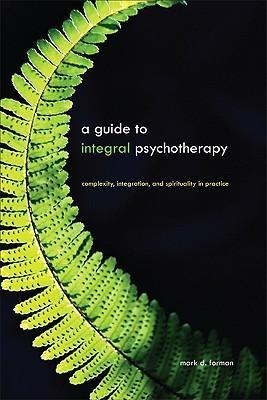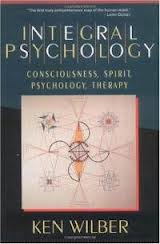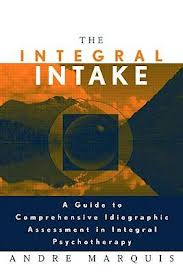- Home
- Training in Bali 20-27 April 2025
- Contact Nic Morrey
- Register for Event/Retreat Updates here
- Professional development
- e-Mental health services
- About Integral Psychology
- The 4 Faces of Love Inventory
- Tree of life relationships inventory
- Couples therapy
- Articles, Links, Audio & Powerpoints
-
Past events
- Moving Forward in your Relationship July 29th 2017
- Carl Jung Conference 2014
- From Boys to Young Men 2014 - Bali Retreat
- Bali Retreat- The Sacred Art of Relating 2012 2013 2014
- Hepburn Springs retreat - The Sacred Art of Relating couples retreat 24-26th April 2015
- Bali retreat for Couples 2-7th September 2016
- Training in Bali 'The Psychology of Relationships' 10-15th September 2017
- Training in Bali 'The Psychology of Spirituality' 2-7th September 2017
- Training in Bali 'Therapy for Therapists' 27 April-2 May and 5-12 September 2019
- Training in Bali 'Therapy for Therapists' 19-31 May 2024
- Training in Bali 'Therapy for Therapists' 28 October till 1st November 2024
- Lothlorien audio
- Training in Bali 20-25 April 27-2nd May 2025
Welcome...

Integral psychology offers a map to heal the whole person. This site is set up to provide experiential avenues for exploring health in ways which come from the edge of postmodern psychology. Whether via the retreats, individual sessions or via the links provided, use this site to get what you need.
Integral psychology, in moving outside of transpersonal psychology and building more bridges to the conventional world, provides a complementary approach to healing the whole person, while maintaining the gold from the four previous forces of psychology (behavioristic, psychoanalytic, humanistic/existential, and transpersonal).
Integral psychology, in moving outside of transpersonal psychology and building more bridges to the conventional world, provides a complementary approach to healing the whole person, while maintaining the gold from the four previous forces of psychology (behavioristic, psychoanalytic, humanistic/existential, and transpersonal).
"At this point in Western history there is little depth, only surfaces as far as the eye can see. This puts an intense selection pressure against any sort of psychology that emphasizes solely or mostly the interiors (psychoanalytic, humanistic/existential, and transpersonal). The old behaviourism (one of the four forces) has survived, precisely because it is focused almost exclusively on exterior behaviour, but also because it has morphed into more sophisticated forms, two of which are now dominant: cognitive science and evolutionary psychology. We are thus left with only objective ‘its’ scurrying about in objective systems, networks, and the empirical web of life: no within, no interiors, no depth.
A psychology which includes behavioural, intentional, cultural, and social dimensions, all of which stretch from matter to body to mind to spirit)--such a psychology is not really psychology as we have known it. Nothing is lost, all is retained; even dinosaurs live on in today's birds; but as of today we know too much to ever settle for less".KW
Enjoy this evolving site...
|
If you haven’t already heard of him, Ken Wilber is one of the most important philosophers in the world today. Often referred to as "the Einstein of consciousness," Ken is the originator of the first truly comprehensive or integrative philosophy, aptly named Integral Theory—"one of the first believable world philosophies," as Ken himself puts it. Incorporating cultural studies, anthropology, systems theory, developmental psychology, biology, and spirituality, it has been applied in fields as diverse as sustainability, psychotherapy, spirituality, education, business, medicine, politics, sports, and art.
|
|
- Ken Wilber Official Website:
http://www.kenwilber.com/home/landing/index.html
For the latest updates on his AQAL-5 writings. Also contains his blog. - Ken Wilber Shambhala Website:
- http://www.shambhala.com/catalogsearch/result/?q=ken+wilber
Contains older editions of AQAL-4 and AQAL-5 writings, but includes many interesting articles including responses to critics. - Integral Multiplex:
http://www.kenwilber.com/multiplex/list
The original website linking all aspects of Wilber's integral projects. - Ken Wilber Wikipedia:
http://en.wikipedia.org/wiki/Ken_Wilber Take this content with a grain of salt, but it's a basic overview. - Ken Wilber on YouTube:
http://tinyurl.com/3bnwzo
This link is a summary of various video clips. One of the most popular is Wilber changing brain state via meditative method to show Theta and Delta signatures along with high Beta (meaning he's awake while his brain is "sleeping.")
- https://www.youtube.com/watch?v=GF4nOfdCYs8 The original think tank of over thirty scholars founded ca. 1997.
- http://integralinstitute.org.au/ is the Australian link to Integral
- Integral Life:
http://integrallife.com/home
The commercial arm of Integral Institute, designed to provide revenue and support the Integral Research Center and Integral Spiritual Center. - Integral Naked:
http://in.integralinstitute.org/now.aspx
Integral Naked is defined as the naked, primordial awareness that is the Ground of Being, and the goal of all transformative spiritual practices. This site contains a wealth of audio and video clips on all aspects of integral theory and practice. - My Integral Life Practice:
https://integrallife.com/practice/
This site features the core transformative practice system for integral researchers. - Integral Spiritual Center:
http://www.kenwilber.com/blog/show/122
One of Wilber's multiplex projects that brought together dozens of the world's leading transformative spiritual practitioners from all major religious traditions. Their goal is to apply Integral Psychology to their traditions to reform and update their authentic transformative practices and teachings. - Journal of Integral Theory& Practice (Formerly AQAL Journal)
- https://foundation.metaintegral.org/jitp
- A quarterly, peer-reviewed journal edited by Dr. Sean Hargens. Contains articles by the founders of Integral Institute, and includes foundational papers on Integral Psychology and Psychotherapy by Alan Combs, Sean Hargens, Elliott Ingersoll, Suzanne Cook-Greuter, Bert Parlee, Paul Landraitis, David Zeitler, Kelly Bearer, Joachim Sehrbrock, and others.
- Integral Diagrams
http://www.flickr.com/photos/slark/collections/72157600929362884/
Over 200 charts and images to help conceptualize foundational AQAL-4 and AQAL-5 ideas. - Integral World: Exploring Theories of Everything:
http://www.integralworld.net/
Frank Visser's Dutch website. Visser wrote a book called Ken Wilber: Thought as Passion (2000). This site contains hundreds of articles, but is not a peer-reviewed site, so take it with a grain of salt (e.g., the calls for a post-Wilber integral are premature as long as Wilber continues to publish new material). - Spiral Dynamics Integral:
http://www.spiraldynamics.net/
Don Beck has developed and applied Clare Graves' Integral Psychology for the past thirty years to various political, social, and economic real world situations, most notably working behind the scenes to help end Apartheid in South Africa as a consultant in the 1980s. Beck updated SDi to include Wilber's quadrants in 2002, but limited his levels to the eight identified by Graves. Thus, he doesn't emphasize integral spirituality the way Wilber does, and Beck now refers to SDi as 4Q/8L. Beck has recently begun to collaborate with the American Psychology Association to create a new field called Large-Scale Psychology. - Center for Human Emergence:
http://www.humanemergence.org/home.html
Don Beck's integral meshwork of Integral Psychologists and SDi practitioners. - Integral Transformative Practice:
http://www.esalen.org/
Created by Esalen founder Michael Murphy and Human Potentials founder George Leonard. Wilber derived his ILP from their work.



